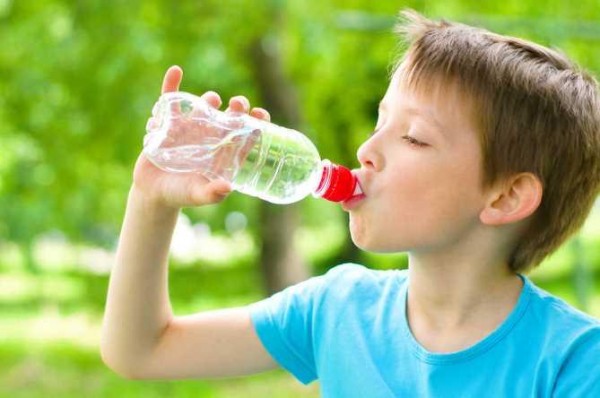Hiccups in a child
In the body of a newborn, everything is so fragile and it is not clear that many mothers panic for any reason. Today we'll talk about hiccups in a child of any age, why it occurs and how to deal with it.
Content
Causes of hiccups in children
First of all, you need to find out what hiccups are. This is a contraction of the muscles of the diaphragm, as a result of which air from the lungs comes out in points.
Hiccups are episodic and prolonged. Episodic - one that goes by itself and lasts 15-20 minutes. Prolonged is characterized by prolonged attacks that occur almost every day. Standard remedies for getting rid of hiccups do not help in this case.
Causes of occasional hiccups:
- severe stress, most often fright;
- cold, it causes involuntary muscle contraction to keep warm;
- overeating;
- swallowing air when feeding in babies;
- hunger or thirst - yes, in some cases our body reacts to them this way;
- after the child has eaten something dry, for example, a sandwich without tea;
- after laughing.
If the baby eats very greedily, then you cannot do without hiccups after. To cope with it in this case is simple - you need to put the child in a "column", holding it in your arms. And walk around with him for about 15 minutes, excess air will come out naturally. Sometimes, it may be accompanied by regurgitation of excess milk.
If a child hiccups for more than half an hour and it does not go away by itself, an adult should intervene. Most likely, the matter is in one of the reasons from the list above, eliminate it and the hiccups will go away.
By the way, even a fetus in the mother's belly can hiccup. And the reason for this may be:
- Sharp swallowing of amniotic fluid.
- Preparing your baby for spontaneous breathing.
- Fetal hypoxia.
And if the first 2 reasons are physiological and do not cause danger, then with the third reason there is a threat to the baby's life. In any case, you should tell the doctor who you are registered with about this.
Frequent hiccups in a child
Frequent hiccups are characterized by daily attacks lasting more than 30 minutes, which cannot be dealt with. This indicates the presence of various pathologies in the body. In this case, self-treatment is unacceptable - after all, you can cause irreparable harm to the little man. Therefore, if you find regular bouts of hiccups in a child, immediately contact a specialist.
Pathologies that can cause frequent hiccups in children:
- diseases of the nervous system;
- the presence of parasites in the body;
- pathology in the work of the diaphragm;
- the development of diabetes mellitus;
- malfunctions in the mechanisms of the brain and / or spinal cord.
Be sure to see a doctor. After the cause is identified and eliminated, the attacks will stop.
How to get rid of hiccups in children
If infant physiological hiccups can be overcome simply - by placing the child in a column. Then, in order to get rid of an attack of hiccups of a baby from one year old, you need to do various manipulations.
Help with hiccups:
- If the hiccups occur on the street or in a cool room, then the child is simply frozen. Feel its nose, it's cool. To get rid of such hiccups, you just need to give your baby hot tea.
- The most effective method of holding the breath is considered. Take in full lungs of air and do not breathe as much as possible. This will help the diaphragm to relax and the hiccups will stop.
- Children from 3 years old can help food way. Offer to eat a lemon wedge or a teaspoon of granulated sugar. You don't need to eat or drink anything.
- Drink warm water in small sips. In this case, it is recommended to hold your breath.
- There is another, "old-fashioned" way to get rid of hiccups. Scare. But this method is not recommended, as it can provoke a mental disorder in the child and lead to stuttering.
- There are a number of medicines available to relieve hiccups. But only a pediatrician can prescribe them, after making sure that it is necessary to treat the problem with medication.
- Sucking helps to relax the muscles of the diaphragm. The baby can be offered a bottle or mother's breast. For an older child, a piece of ice or ice cream. The main thing is to use it in small portions so as not to provoke hypothermia of the larynx.





